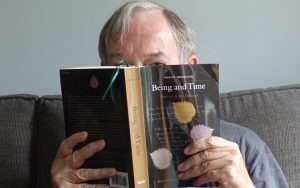It is always fascinating to read about a very old mystery that is finally solved.
In 1984, a twelve-year-old girl, Jonelle Matthews, disappeared from her home in Greely, Colorado. Police say they have been “haunted” by the case since then. Last week, the mystery was “solved”. A man named Steve Pankey was convicted of her kidnapping and murder.
Wow! DNA evidence, right? Fingerprints? A witness? A confession?
Well, we now know better than to trust confessions.
The evidence, as far as can be determined from the news article in the New York Times and Wiki, consists mostly of Pankey making “odd” comments about the case, showing an “unusual” interest in it, and … well, read about it. It’s get weirder and weirder. Apparently, Pankey, who is divorced, and whose wife seems to have provided police with some of the evidence of Pankey’s “odd” interest in the case, admits to being a celibate homosexual, even while he served as an assistant pastor at his church.
His wife, apparently, does not remember that his alibi– that he was with her the night of the kidnapping– was a lie. She was there with him, just a few nights before they left for a trip to California. The car was already partly packed. Would she not remember if he had been out that evening, if she remembers that he listened to radio accounts with suspiciously strong curiosity, or that he asked her to read newspaper accounts of the story aloud to him after they arrived home?
Jonelle’s body was found in 2019 by a construction crew working on a pipeline. There is no DNA evidence, no finger-prints, no photos, no witnesses. There is, in short, nothing but a rather bizarre interpretation of some odd but not really strange verbal expressions by the suspect.
This is not the first time some odd person has made curious statements about an unsolved murder. We should know better by now: it’s a psychological condition, a personality quirk, a bizarre compulsion. If a person behaves “oddly”, by all means, check it out. But if there is no supporting evidence, you probably have something similar to this case.
Ask yourself this: would the police have ever excluded a possible suspect because he didn’t provide “superfluous details” when discussing the case with them?
But to bring a case like that to court, based sole on the “superfluous” detail or “excessive” interest is worse than inadequate. It borders on criminal abuse. Close enough! Hang him! Great police work! Medals for everybody.
And Jonelle’s family is glad to have “closure”. If I were in Jonelle’s family, I would tell the police, “are you fucking kidding me?” Get back to work.
This is all absurd. It’s idiotic. And, as if we don’t already know from election-deniers, it is further evidence that a lot of people are, frankly, stupid: a jury voted unanimously that, by golly, if the police think he’s guilty, he must be guilty. They convicted him.
Pankey insists he is innocent. He says he is being persecuted because of his homosexuality. He might be right.
I love the “superfluous details”. The police felt that the “superfluous details” implicated him. Because there is some kind of magical police science that tells you that men who provide “superfluous details” likely committed a crime. Just as, when I was little, my mother believed that giggling if someone stared at you and asked if you were lying meant that you were lying.
I know people who put on a grave, serious expression when talking about police who were killed or injured on duty, as if there is something solemn or sacred about them. It is very hard, especially recently, especially after the numerous incidents in which police behaved very, very badly (even to the point of homicide) and not one of the officers who saw or heard of the incident reported it, to not believe that most police don’t deserve our respect.
Interesting side-note: Jonelle was born to a 13-year-old girl, and then adopted.
“A chokecherry tree was planted in front of Franklin Middle School in memory of Jonelle. The tree died after a few years and a plaque inscribed with Jonelle’s name disappeared.[18]” (Wiki) So much for that solemn commitment to commemorate and honor her memory. I guess it was a superfluous detail.


